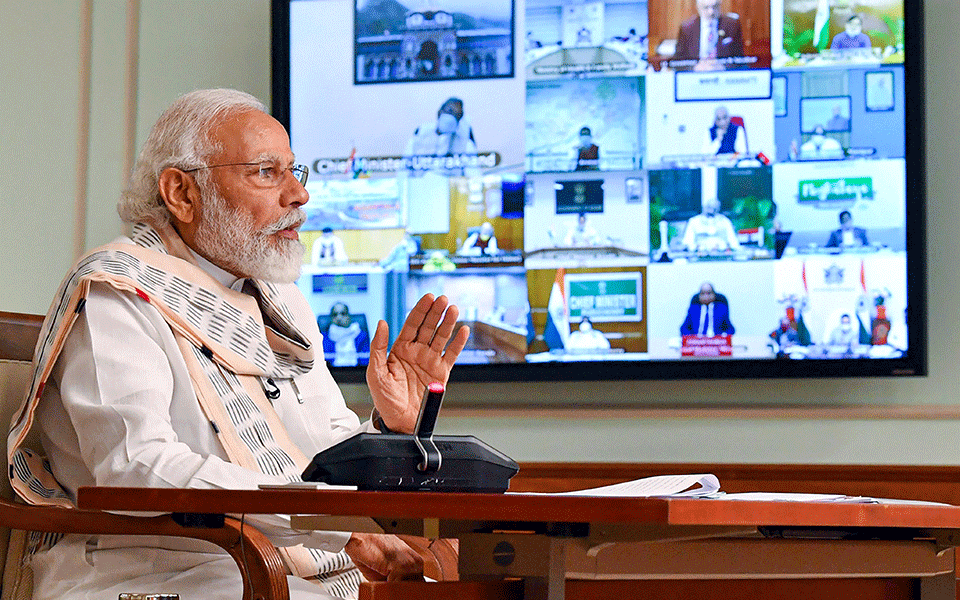New Delhi: Twitter users on Thursday marked the birthday of Prime Minister Narendra Modi as the “National Unemployment Day” to highlight the Prime Minister’s failure to create jobs and provide employment for the people of the country. An agenda, riding on which Modi had contested the Lok Sabha elections in 2014.
The campaign which is being run using two hashtags #NationalUnemploymentDay and #राष्ट्रीय_बेरोजगारी_दिवस has received over two million tweets at the time of posting of this report.
This week is also being celebrated as a Rashtriya Berojgar Saptah and it will culminate today. In this week, the youth continuously tried to communicate their issues, conditions and all the problems to the government through various means.
Twitterati are also protesting for their demand like reform in SSC and other recruitment agencies. They also want a complete overhaul in the recruitment process for the betterment of lakhs of Aspirants.
#राष्ट्रीय_बेरोजगारी_दिवस
— Prashant Mishra (@Prince_pandit_) September 17, 2020
On 17th September, Modiji will celebrate his birthday. Youth of India will celebrate Modiji's birthday as #NationalUnemploymentDay who has broken all records of unemployment. @FOUNDERofMMES
#NationalUnemploymentDay pic.twitter.com/Nr9xQMRPuW
#राष्ट्रीय_बेरोजगारी_दिवस#NationalUnemploymentDay
— बेरोजगार Shiksha Verma (@iTsMeshivey) September 17, 2020
Sometimes, you have resources but you don't know how to use them.
Same is with Modiji. He should focus on enrichment of Students with skill and employment, he is focusing of religion based petty politics. #HappyBdayNaMo pic.twitter.com/JgMd8YnwJ6
Worst Government Ever. Unemployment, Recession,GDP, Economy, Failed Border Security,.... The gain is the clash of people in the name of religion #NationalUnemploymentDay #राष्ट्रीय_बेरोजगारी_दिवस@PMOIndia @narendramodi pic.twitter.com/LAP5ch7k84
— Prem Raaz (@PremRaaz1112) September 17, 2020
Unemployed youth is celebrating Modi Ji's Birthday means #NationalUnemploymentDay #राष्ट्रीय_बेरोजगारी_दिवस outside Rajasthan university campus. pic.twitter.com/wSwhBhIA5w
— NSUI (@nsui) September 17, 2020
12 crore job lost, 175 lakh small businesses on the verge of closure, why is Modi ji silent?#NationalUnemploymentDay pic.twitter.com/B0VlOVGna3
— Deepak Khatri (@Deepakkhatri812) September 17, 2020
Crores of Youth thrown out of jobs in the past few months ! What about the promise made abt 2cr. jobs per year?
— Aishe (ঐশী) (@aishe_ghosh) September 17, 2020
Yuva ko Chahiye Rozgar !#NationalUnemploymentDay
Now it seems that Modi ji and all the BJP leaders have become blind because unemployment is the highest in the last 45 years at this time, the youth of the country are constantly asking for employment from Modi ji but they are not giving them employment#NationlUnemploymentDay pic.twitter.com/b6VrnnpRPO
— Deepak Khatri (@Deepakkhatri812) September 17, 2020
#NationlUnemploymentDay
— Student Youth ?? (@StudentYouth2) September 17, 2020
17 September national unemployment day
Student Power ??@PMOIndia @dhruv_rathee @HansrajMeena@CarryMinati @ashchanchlani @RailMinIndia pic.twitter.com/CzI6eFA5pl
Let the Truth be known. If you read VB and like VB, please be a VB Supporter and Help us deliver the Truth to one and all.
Srinagar (PTI): Normal life in Kashmir was affected for the fifth consecutive day as partial restrictions on movement of people remained in force as a precautionary measure.
The restrictions were imposed on Monday after spontaneous protests broke out across Kashmir a day earlier against the killing of Iran's supreme leader Ayatollah Ali Khamenei in US-Israel joint strikes.
Chief minister Omar Abdullah on Wednesday held a meeting with civil society representatives and religious leaders as part of efforts to bring the situation back to normalcy.
ALSO READ: Protests against Khamenei's killing: Curbs remain in force in Kashmir
After the meeting, Abdullah appealed to people to maintain peace while expressing grief and anger in "mosques, shrines and Imambaras".
The government has shut educational institutions till Saturday, and reduced mobile internet speeds.
"Restrictions on the movement and assembly of the people continued in many parts of Kashmir on Thursday," the officials said.
A large number of police and paramilitary CRPF personnel were deployed across the city to prevent gatherings of protestors, the officials said.
They added that concertina wires and barricades were placed at important intersections leading into the city, while asserting that these were precautionary measures imposed to maintain law and order.
The iconic Ghanta Ghar in the city centre of Lal Chowk here continued to remain a no-go zone after the authorities sealed area with barricades erected all around it on late Sunday night.
The move to seal the Ghanta Ghar came after it witnessed massive protests on Sunday after Khamenei's assassination in the joint air strikes by the US and Israel.
This is the first time since August 2019 -- when Article 370 was revoked -- that protests on such a large scale have taken place in Kashmir.





